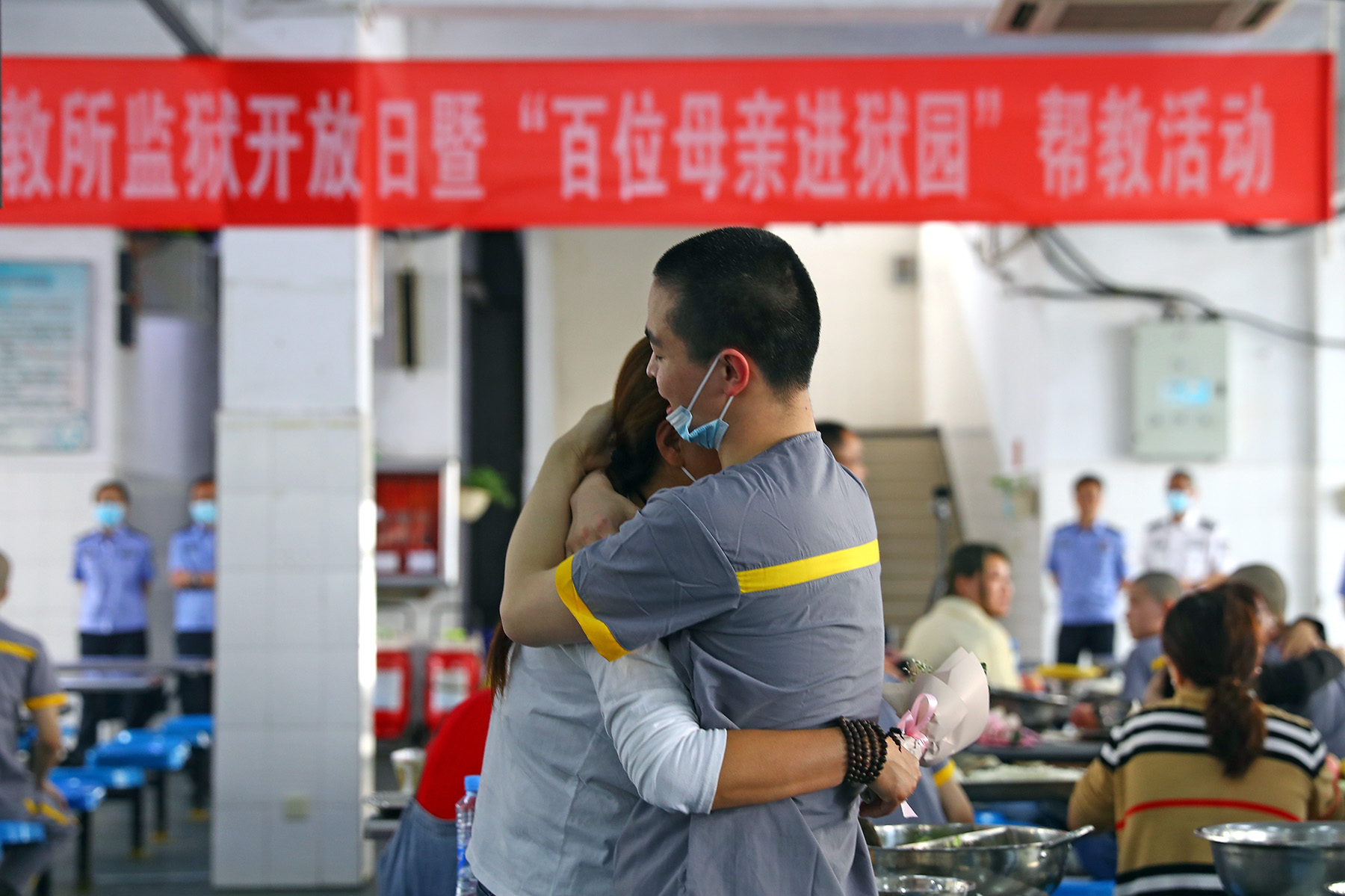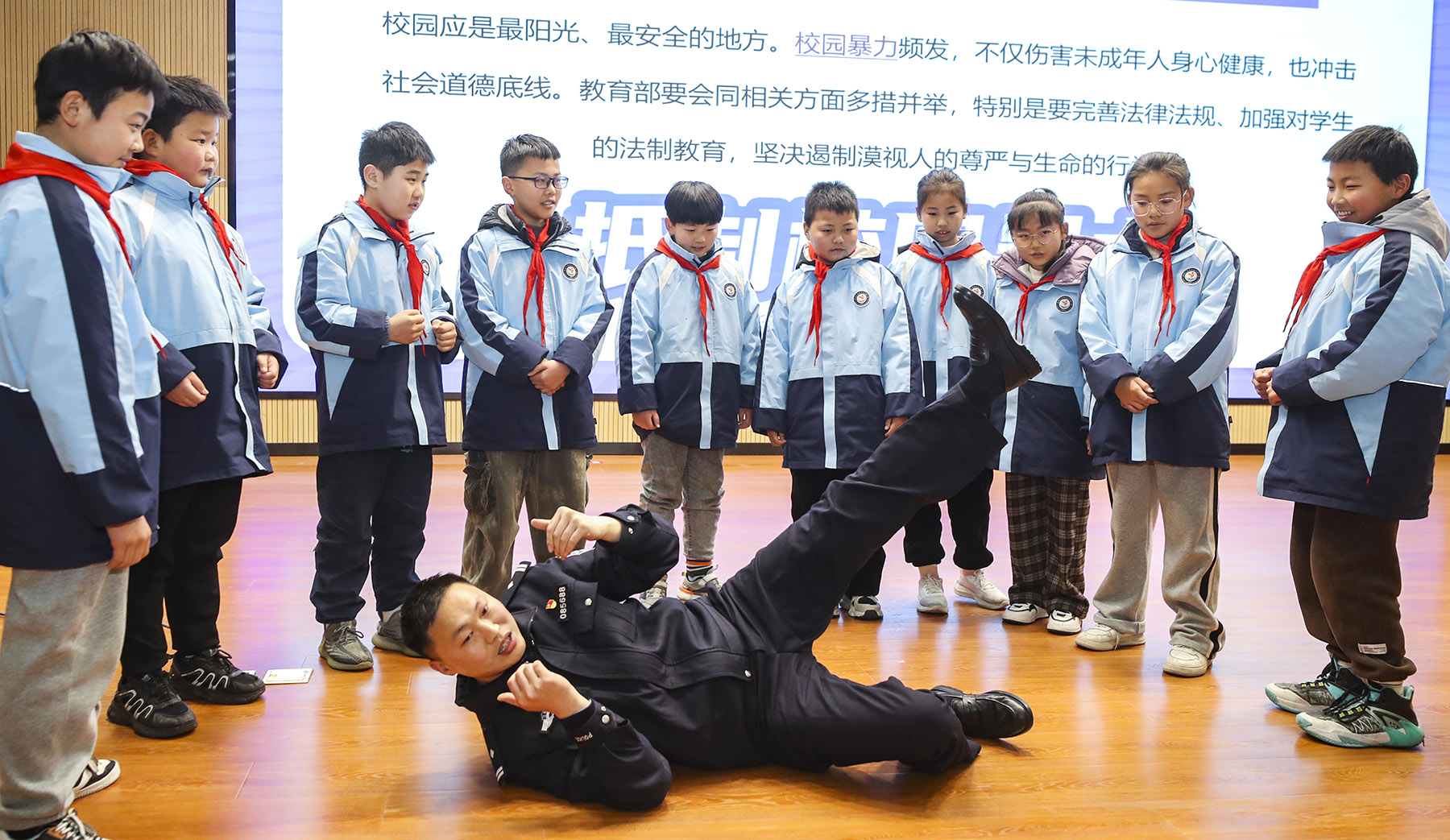Legal experts raise questions over effectiveness of intervention, rehabilitation efforts

A recent case in which three boys have been held on suspicion of killing their classmate has shocked the country and put the issue of juvenile crime in the national spotlight once again.
On March 10, the victim, a seventh-grade student surnamed Wang, was allegedly killed in Feixiang district of Handan, Hebei province. The next day, three suspects surnamed Zhang, Li and Ma, whose ages range from 12 to 14, were detained by police, according to a statement released by the provincial authorities.
READ MORE: Students face prosecution in murder case
The body of Wang, 13, was found buried in an abandoned vegetable greenhouse in the district's Zhangzhuang village, about 100 meters from the home of one of the suspects, media outlets reported.
After a preliminary investigation and autopsy, Li Yafeng, an official from the district's public security bureau, told China Central Television on March 18 that it was a "premeditated crime", and "no evidence was discovered that indicated the involvement of adults in the offense".
The suspects dug a hole in the greenhouse on March 9 and 10 to bury the body, Li also alleged.
News of the killing went viral on social media platforms, sparking huge debate and widespread outrage over juvenile crime, especially cruel and severe acts committed by minors.
China's top procuratorate, in line with the Chinese Criminal Law, recently approved the prosecution of the three minors.
However, some stakeholders such as legal professionals, have expressed their concern about the effectiveness of the rehabilitation of young offenders, and called for relevant professionals to become more involved to rectify the long-term behavior of such offenders.
Although minors, the suspects are expected to be held criminally liabile.
Details of the prosecution and how it will be handled were disclosed by the Hebei Provincial People's Procuratorate in a statement released on April 8.

District police handed the case over to local prosecutors on March 21 to decide whether the suspects should be prosecuted, the statement said. After reviewing the case, the prosecutors concluded that the three minors should be held criminally responsible as the suspects all met the legal age threshold of criminal liability, and the circumstances of the killing were severe.
China's age of criminal liability was lowered to 12 on March 1,2021, when the amended Criminal Law took effect.
Since then, children aged 12 to 14 can be held criminally liable for intentional killing by extremely cruel means, or for intentional injury that leads to death or severely disables others. However, the law also stresses that the decision to prosecute must be approved by the Supreme People's Procuratorate.
Before the amendment, the age of criminal liability was 14 to 16, and children could be held responsible for committing serious and violent offenses, including rape, robbery, intentional injury, and intentional homicide.
"The adjustment in age was made considering new situations and problems with juvenile delinquency," said He Ting, a law professor at Beijing Normal University. "Lowering the threshold to 12 in special circumstances has provided a legal channel to fight severe offenses committed by very young individuals."
Zhao Li, a criminal lawyer at Beijing Jingsh Law Firm, highlighted the significance of special and stringent circumstances under the law. "They indicate that Chinese judicial authorities are still prudent when dealing with juvenile offenses," he said.
This prudence is reflected in the fact that the provision only applies to suspects between the ages of 12 and 14 who commit either intentional homicide or intentional injury, and the consequences of the offense must be serious, Zhao said.
"The law also gives the SPP the right to determine whether to continue the judicial process, which is also an indication of the careful handling of crimes committed by the very young," he added.
Imposing penalties is the last resort in combating juvenile offenses, as the problem cannot be resolved solely by punishment, both He and Zhao said.
Combating juvenile crime is a complex and systematic job that demands varying levels of intervention, corrective measures and prevention of juvenile delinquency, they added.

Preventive measures
While lowering the age threshold, China has also optimized supporting measures through legislation revised in 2020 to deal with juvenile crimes and strengthen rehabilitation of young offenders.
The revised Law on Prevention of Juvenile Delinquency, which came into effect in June 2021, states that minors convicted of crimes but exempt from criminal punishment — such as those under the age of 12 or whose offense is not violent — should receive education and rehabilitation.
Data released by the SPP in 2022 showed that the number of juveniles prosecuted for committing offenses in 2021 increased by 24.2 percent from 2017, and the criminal charges mainly involved theft, rape, affray and robbery.
Crimes committed by offenders between the ages of 14 and 16, or even younger, became more frequent during the 4-year period, with the number of minors involved in telecom fraud rapidly rising.
Yuan Ningning, an associate law professor at the China University of Political Science and Law, told China Youth Daily that before juveniles commit crimes, most have been involved in illegal behavior that was not stopped by effective and early intervention.
To solve the problem, the 2021 prevention law requires stronger management of minors, and stipulates that children who seriously misbehave should be educated and rehabilitated in special correctional schools.
Whether to send delinquent minors to correctional schools needs to be jointly decided by education and public security departments. It also must be clarified that the rehabilitation process has closed, and public security and justice agencies are in charge.
These stipulations are measures complementary to criminal punishment, Yuan said, adding that delinquent minors of all ages can be regulated by the rule of law in this way.
"Adolescents are inseparable from their families and schools. If they are simply detained, it will not be conducive to their socialization and could easily lead to greater security risks after they are released," Yuan told China Youth Daily.
Best intentions
However, implementation of the revised Prevention of Juvenile Delinquency Law has not been straightforward.
Yuan said some public security departments have only provided basic education to minors, instead of special corrective measures, after learning that the children did not meet the age threshold for criminal liability.
At the same time, the number of professionals who can provide corrective measures such as judicial social workers, along with the number of special correctional schools where young offenders can receive psychological help and behavioral rehabilitation, are also inadequate, he said.
Guidance on specific laws, and rules on what corrective measures should be provided to help delinquent children are also falling short, he added. Public security, judicial, and educational agencies should specify the provisions related to the special corrective measures to make their implementation more practical, Yuan said.
ALSO READ: Courts told to focus on juvenile crimes
Zhao, the Beijing lawyer, said more social organizations should be encouraged to help in the rehabilitation of young offenders, with a greater focus on problems related to left-behind children and school bullying.
As of April last year, China had about 233,500 social workers. Of those, nearly 30 percent worked in judicial affairs, conducting social research and providing psychological assistance, according to the Central Committee of the Communist Youth League of China.
The league has also invited about 5,000 legal and psychology specialists to attend its think tanks to answer questions from children and their guardians.
"Children, especially the very young, need more care, attention, and aid while growing up. The law, or punishment, is just one of many ways to help them tackle their issues, but it is not the only way," Zhao said.
"When compared with punishment, it is more important to establish a work system with enough team members and practical measures to help delinquent children identify and solve their mistakes, so they can return to and integrate back into society," he added.


